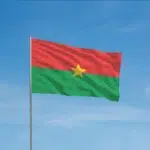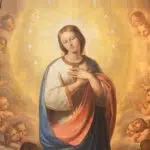The Day of our Lady of Africa or “Dia de Nuestra Señora de África” in Spanish is celebrated on August 5 and is a day of celebration by Christians in the Spanish city of Ceuta, Spain. It is a very important festivity in Ceuta and it is also a public holiday. A fair which attracts a lot of people is organized annually and launches from July till August 5. The day and days leading up to it come with a lot of activities. From laying flowers in front of Our Lady of Africa to the procession with the Costaleros. A lot is to be gained from this wonderful celebration.
History of Our Lady of Africa
Ceuta is bordered by Morocco and lies along the boundary between the Mediterranean Sea and the Atlantic Ocean. Alongside Melila and the Canary Islands, Ceuta is one of the several Spanish territories in Africa and the only one permanently inhabited by a civilian population. It became an Autonomous city in March 1995. Its population consists of Christians, Muslims, and some Sephardic Jews. Spanish is the official language but Darija Arabic is also spoken by 15 to 20% of the population.
The Day of Our Lady of Africa celebrates and honors the Virgin Mary as she is the patron saint of Ceuta. It is a holiday that is observed with religious ceremonies, especially at the Church of Santa Maria de Africa, a Roman Catholic church, with lots of other celebrations elsewhere in Ceuta.
In August 1415, Ceuta was conquered by the Portuguese, led by King John I. After it was conquered, his son, Henry the Navigator, sent a picture of Our Lady of Africa to the city to be used as a guide for the building of the First Church of Santa María de África in 1421. Years later in 1668, King Afonso VI of Portugal formally ceded Ceuta to King Carlos II of Spain with the Treaty of Lisbon.
The celebration of the Day of our Lady of Africa continues to be very important as many Christians go to the Plaza de África in Ceuta on August 4 to lay flowers in front of the statue of the Our Lady of Africa or outside the church that houses the statue. On August 5, the procession with the statue of Our Lady of Africa takes place through the street of Ceuta and people throw flowers from balconies onto the statue.
Our Lady of Africa timeline
The Portuguese, led by King John I, invade and conquer Ceuta.
The Portuguese begin building the Royal Walls of Ceuta.
King Afonso VI of Portugal formally cedes Ceuta to King Carlos II of Spain with the Treaty of Lisbon.
The statute of autonomy is passed to Ceuta by the Spanish government.
Our Lady of Africa FAQs
Why is it called Our Lady?
“Our Lady” is a common title to give to Mary as a sign of respect and honor.
Why do Catholics pray to Mary?
Prayer to Mary is only a memory of the great mysteries of our faith. Catholics do not pray to Mary as if she were God.
Why does Spain want Melilla and Ceuta?
They offer protection for Spanish ships and act as trading posts between Europe and Africa.
How to Observe Our Lady of Africa
Visit Ceuta
Visit Ceuta to celebrate the day. This way you get the live experience of the procession through the streets of Ceuta.
Say a prayer for Ceuta
Celebrate the day by saying a prayer for Ceuta and yourself. This could be by going to church to pray or saying the prayer at home.
Spread awareness
Create more awareness of the day by telling others. A social media post goes a long way.
5 Interesting Facts About Ceuta
Territorial disagreements
Spain and Morocco have had several disagreements about Ceuta
A part of the European Union
Although it is located in Northern Africa, Ceuta is a member of the European Union and uses the Euro currency.
Spanish is the official language
Although many residents speak Darija Arabic, Spanish is the official language of Ceuta.
Spain in Africa
Ceuta is a Spanish autonomous city lying on the north coast of Africa.
It has low tax rates
Numerous products are smuggled into Morocco through the Port of Ceuta as Ceuta has a low tax rate.
Why Our Lady of Africa is Important
It is a day of fun
The celebrations are usually fun. As it is a public holiday in Ceuta, people take the opportunity to let loose and forget whatever problems they may be facing in that period.
It builds our spirituality
Celebrating the day builds our spirituality. Whether it's just saying a prayer, going to church, or attending the procession, your spirituality goes higher during the celebrations.
It promotes tourism
The celebrations attract people from all over the World, especially Roman Catholics. This helps to boost tourism in Ceuta and position Ceuta as a place to visit.
Our Lady of Africa dates
| Year | Date | Day |
|---|---|---|
| 2025 | August 5 | Tuesday |
| 2026 | August 5 | Wednesday |
| 2027 | August 5 | Thursday |
| 2028 | August 5 | Saturday |
| 2029 | August 5 | Sunday |










